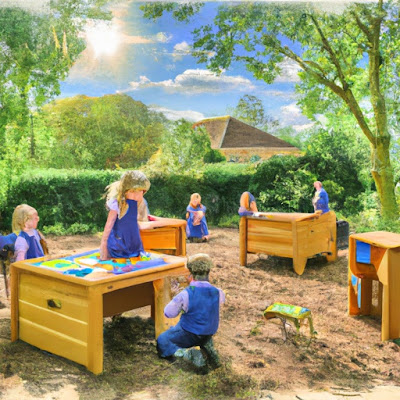The Benefits of Play-Based Learning in Primary Education
As a parent or teacher, you may be wondering about the most effective way to educate young children. Traditional methods such as rote memorization and lectures have been used for decades, but research has shown that play-based learning can be just as effective, if not more so, in fostering a love of learning and developing crucial skills. In this article, we will explore the benefits of play-based learning in primary education and how it can positively impact children's development.
Introduction
Play-based learning is an approach to education that prioritizes the child's natural curiosity and desire to learn through play. In this method, children are encouraged to engage in open-ended play activities that are designed to promote learning and development in areas such as language, socialization, problem-solving, and creativity. Play-based learning can take many forms, such as imaginative play, group games, and exploratory activities.
In recent years, there has been growing recognition of the benefits of play-based learning in primary education. Educators and researchers have found that this method can help children develop critical thinking skills, problem-solving abilities, and emotional intelligence, as well as promoting a love of learning that can last a lifetime. Let's take a closer look at some of the specific benefits of play-based learning.
Body
1. Develops Critical Thinking Skills
Play-based learning encourages children to explore and experiment with different materials and ideas, allowing them to develop their critical thinking skills. For example, when children engage in imaginative play, they must use their creativity and problem-solving abilities to come up with new scenarios and solutions to challenges. This type of play helps children develop the ability to think critically and approach problems from multiple perspectives.
2. Encourages Socialization
Play-based learning can also help children develop important socialization skills. When children engage in group play activities, they learn how to communicate, negotiate, and collaborate with others. These skills are essential for building positive relationships with peers and adults, and they can help children thrive both in and out of the classroom.
3. Fosters Creativity and Imagination
Play-based learning encourages children to use their imaginations and explore their creativity. When children engage in imaginative play, they can take on different roles and experiment with different scenarios, allowing them to develop their creativity and imagination. This type of play also helps children develop their language skills and express themselves more effectively.
4. Builds Emotional Intelligence
Play-based learning can also help children develop emotional intelligence, which is the ability to understand and manage their emotions and the emotions of others. When children engage in play activities, they learn how to express their feelings and understand the feelings of others, which can help them build positive relationships and develop empathy.
5. Promotes a Love of Learning
One of the most significant benefits of play-based learning is that it promotes a love of learning. When children are encouraged to explore and experiment with different ideas and concepts through play, they develop a curiosity and enthusiasm for learning that can last a lifetime. This love of learning can help children succeed in school and beyond, and it can lead to a more fulfilling and satisfying life.
Conclusion
In conclusion, play-based learning can be a highly effective approach to primary education, offering numerous benefits to children's development. By encouraging critical thinking, socialization, creativity, emotional intelligence, and a love of learning, play-based learning can help children develop the skills and abilities they need to thrive in school and beyond. Whether you are a parent or a teacher, consider incorporating play-based learning into your child's education to help them reach their full potential.




No comments:
Post a Comment